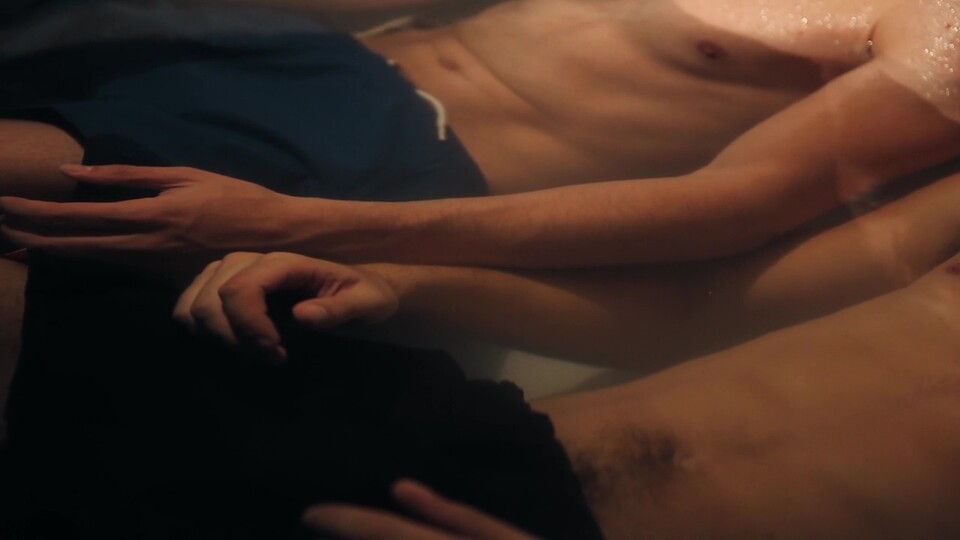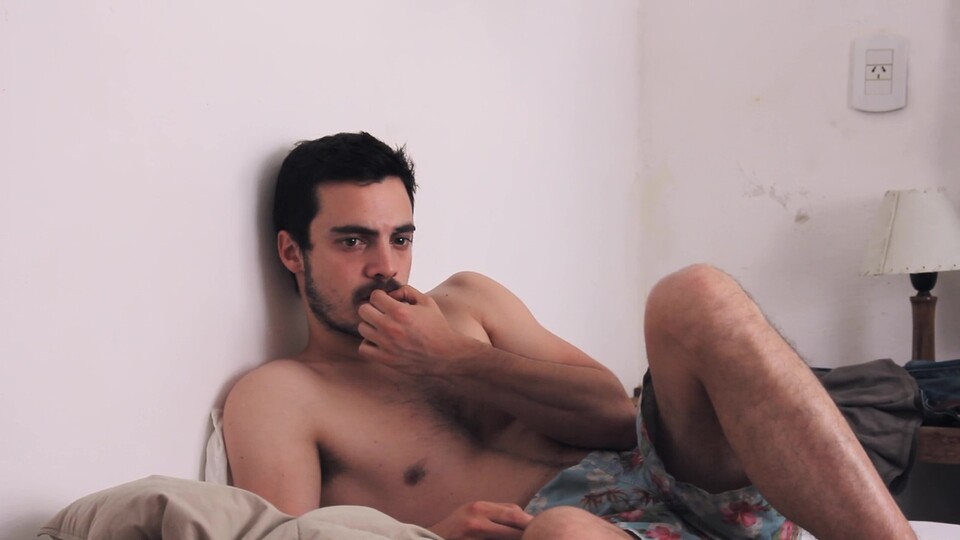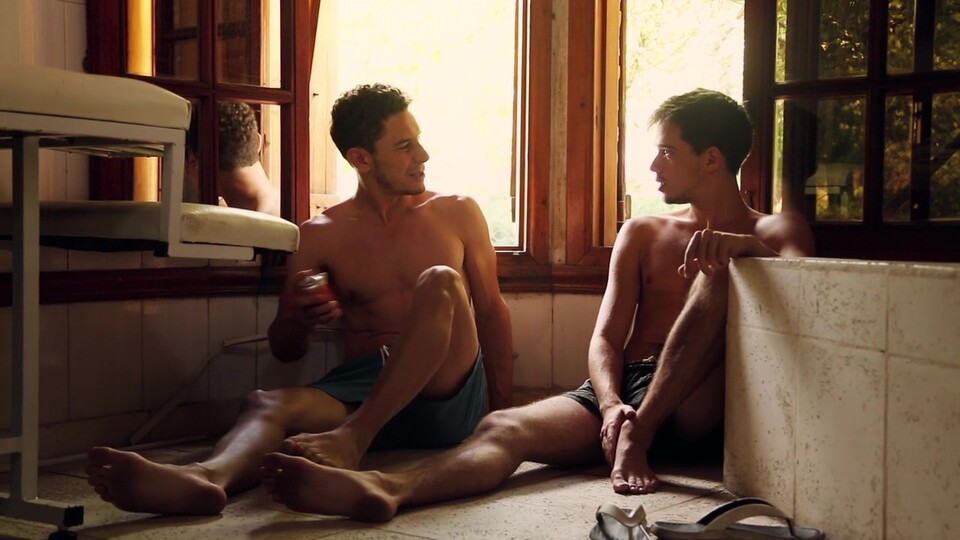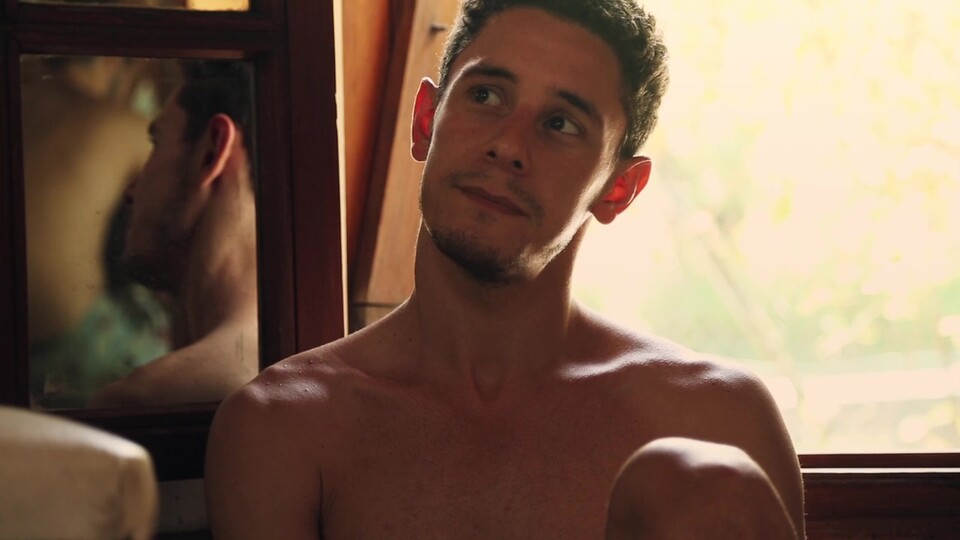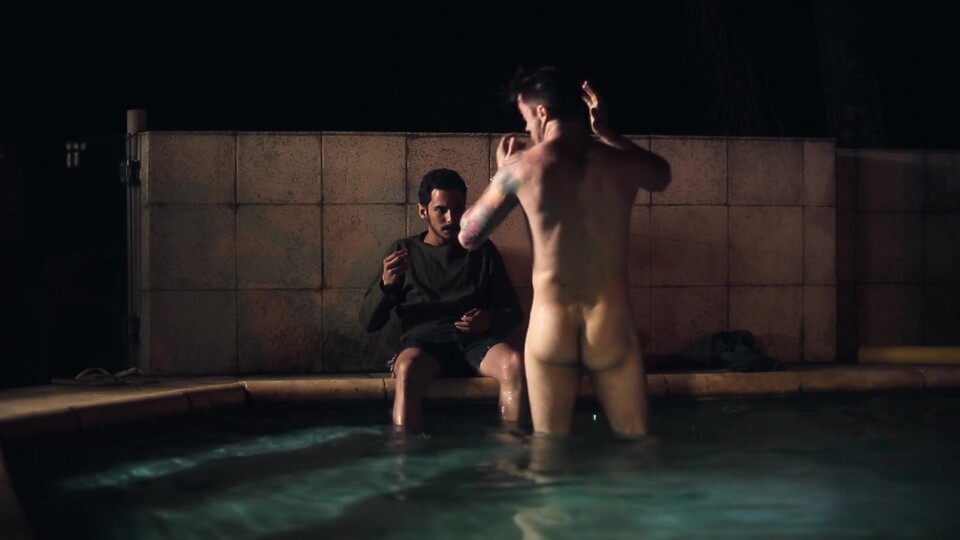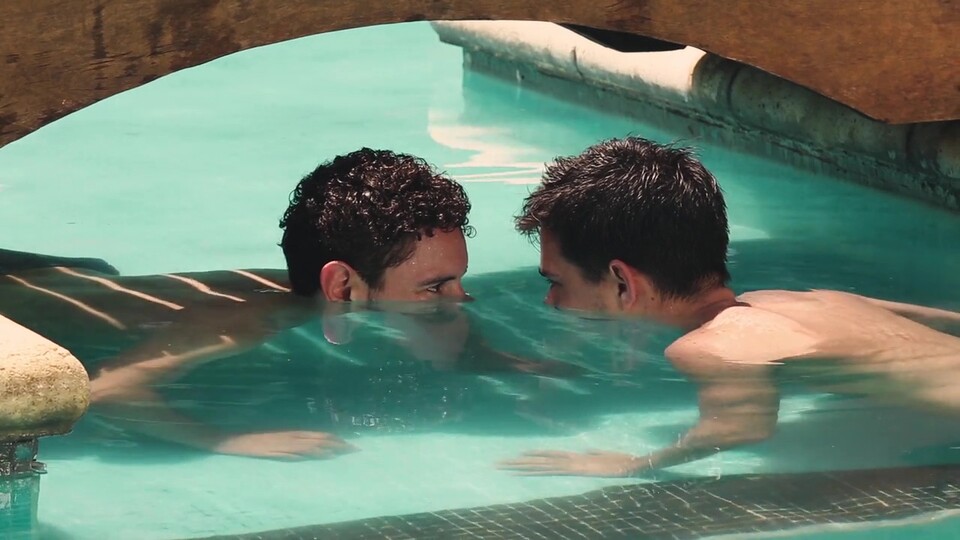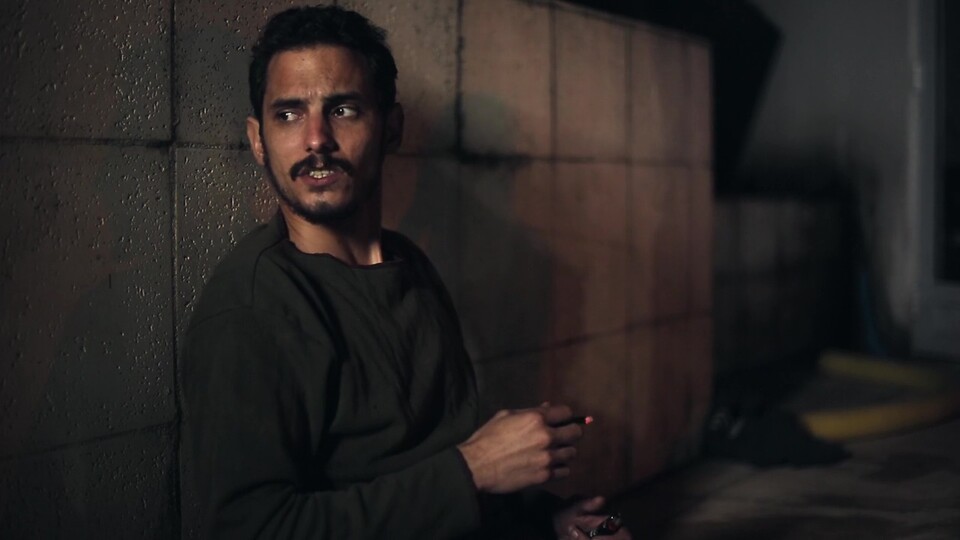Taekwondo shows the same interest on ambivalence and hesitation as previous Marco Berger films Hawaii, Absent and Plan B. They are very much about the time it takes to resolve some kind of stasis, and time itself is not easy to convey on film, that's why we are also offered the promise of narration.
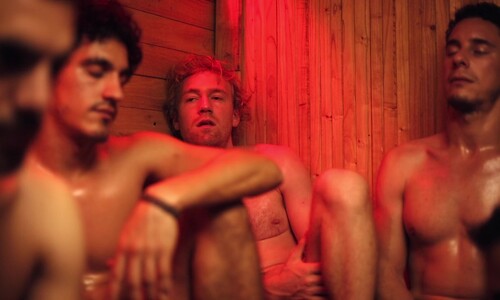
Seeing people making their minds up is not, after all, intrinsically cinematic. Yet, Berger has chosen the right context to do it, a plausible framework to the doubts of the protagonist Germán (Gabriel Epstein): a large house where a group of twenty something males wearing very little is spending a holiday.
The atmosphere is, we assume, typical of men at leisure: they play some sports, then relax in a sauna, they walk around semi-naked, sometimes stark naked, they talk about women, they horse around, show vulnerability and they play videogames. Germán is there at the invitation of taekwondo buddy Fer (Lucas Papa), and as the film progresses it transpires that Germán is attracted to Fer.
Gabriel Epstein as Germán

This is teasingly understated, and the understatement matters: it suggests that maybe the attraction provides some narrative focus and tension but it is not what the film is about, and also it suggests that maybe homosexuality is not a big deal among this crowd.
And how is this plausible? Isn't homophobia the defining trait of male homosocial dynamics? Apparently not anymore, certainly not everywhere. When these guys refer to homosexuality they may use the old-style put-downs and certainly, they will not acknowledge their friendship has anything blatantly sexual to it. Still, the film crackles with some kind of recognition. Awareness of flesh, of penises, wandering glances. How "homosexual" these guys are is not what the film is about. Sure, most of them aren't. But at the same time, it pushes the borders of any strict heterosexual male mythology. Few non-pornographic films gravitate around male flesh being looked at, pinched, caressed, scratched.
For gay men, the film is a pointed realization of a very common fantasy we all experienced, mostly based on the flashes of flesh in the locker room, the feeling of being both close and detached from those men, the idea that one had to hide and fear forbidden desires might be revealed.
Germán listens to conversations and looks at their behavior with a degree of discomfort, some amusement, fascination and maybe a bit of caution. And all the time we feel Berger and Farina's camera is complicit with his gaze as he forces himself to avert his eyes, to look on, to inquire trying to learn whether his advances would be, given the right circumstances, welcome.
Fragmented glances: Body parts in Taekwondo (Marco Berger, 2016)
Camerawork is at the heart of what the film is proposing. If narrative tension is understated, if not a lot is made, in terms of plot, of Germán's doubts and their resolution, it is clear that the camera empathizes with him. We are led to look where he is looking and, like us, the camera looks away when the danger of becoming too obvious arises; it gazes on, casually, ironically, on a big hunk who tends to show off his genitalia.
It may or may not matter to the guys, but it is certainly what motivates editing and composition choices: the light sculpts the bodies, the editing follows gazes and desires, not plot, time is about looking at male flesh. Are they aware of this? Do they care? Yes and no.
Glancing...
Berger is suggesting that attitudes towards male narcissism are changing and maybe the premises and effects of homophobia are changing too. At least in the context set by the movie.
The right circumstances are engineered in the very last minutes of the film. Then we are allowed some kind of resolution. But it is to Berger's immense credit that, beyond such closure, we have been content about process and dynamics and the final answer to Germán's meditation does not really matter that much. It's as if this last image, which the filmmakers did not decide on until late in the production process, had just been an excuse to keep us looking on.
And as spectators we stubbornly need excuses.










